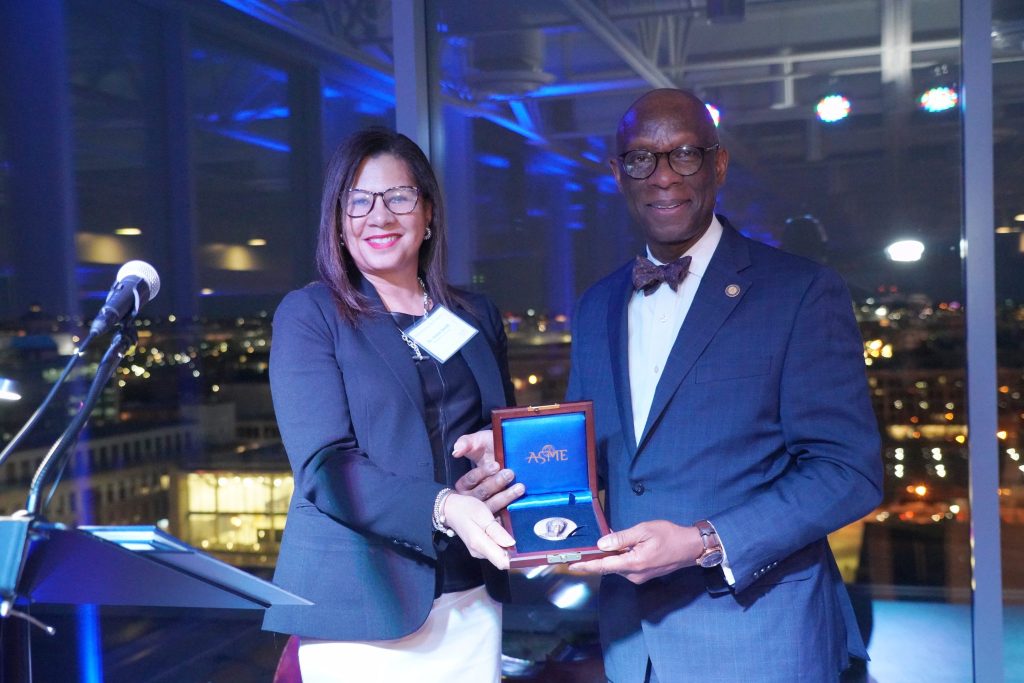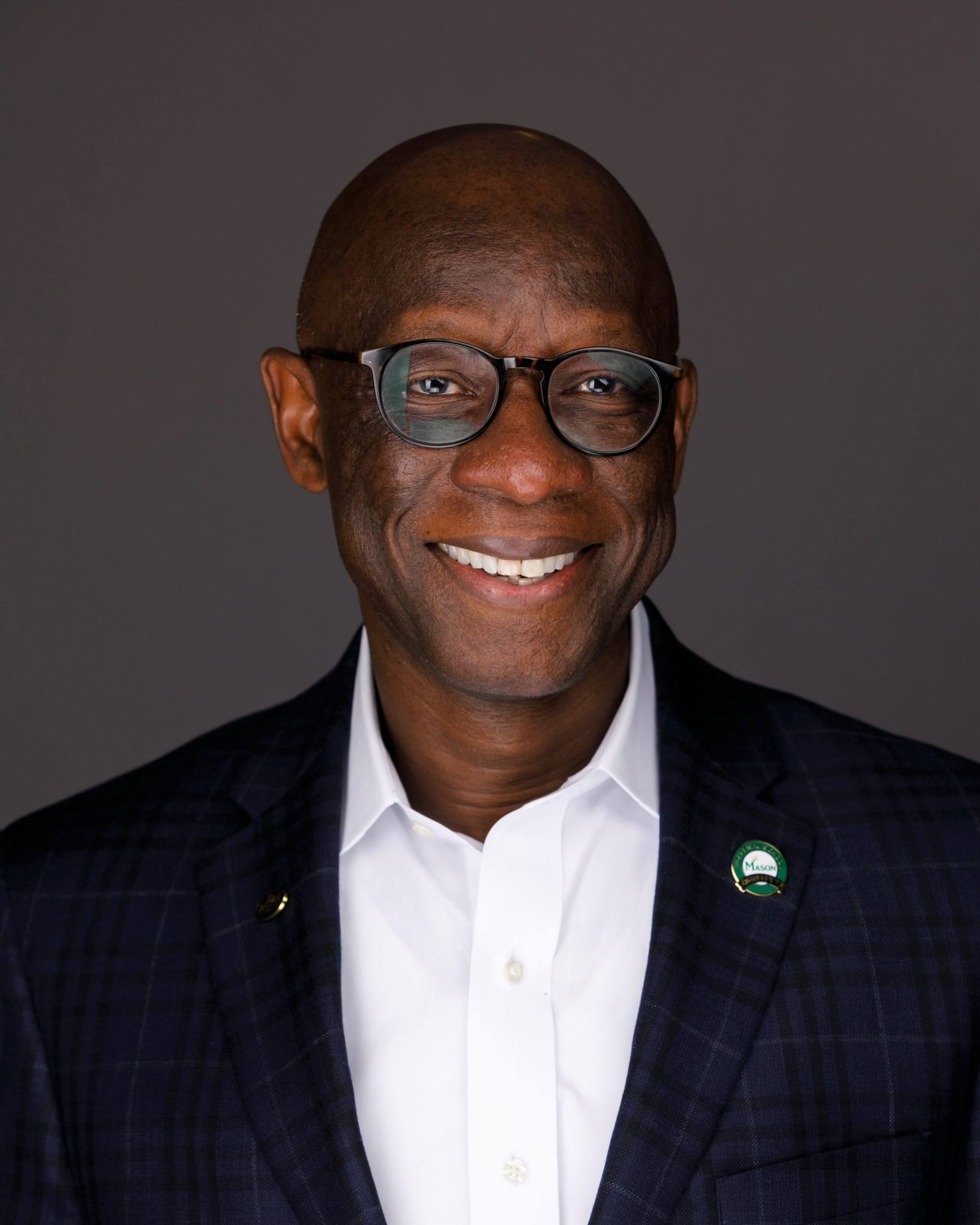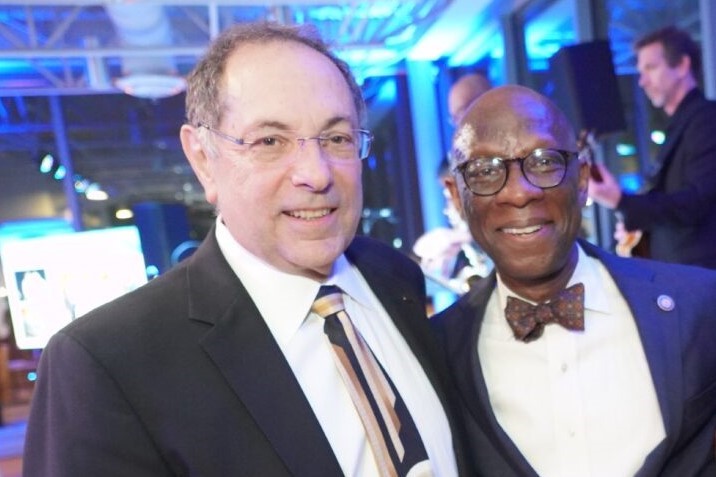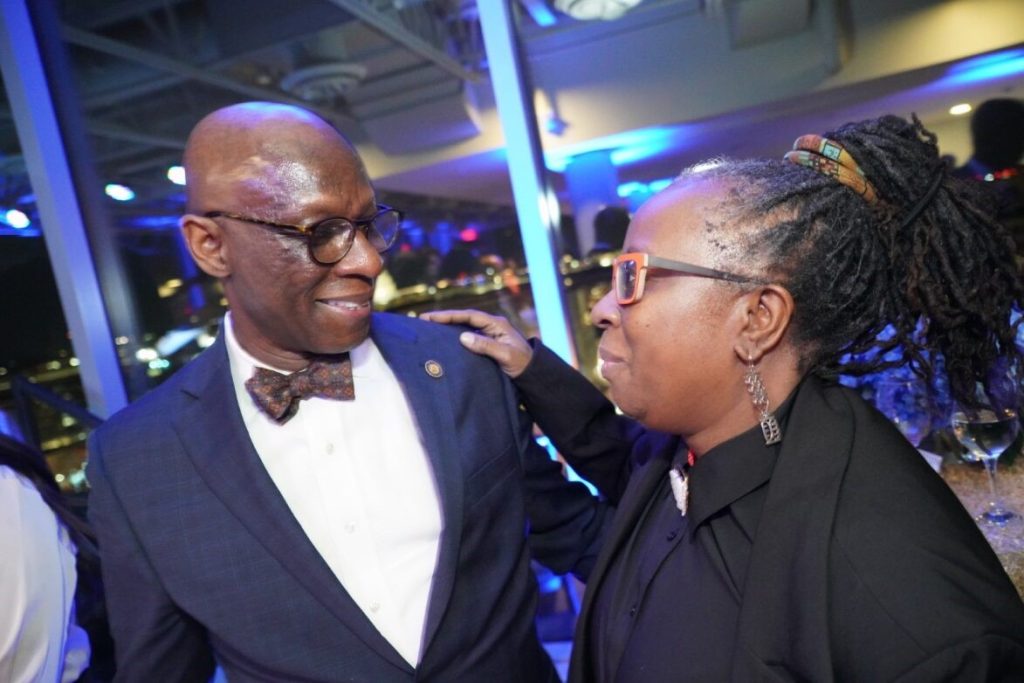The American Society of Mechanical Engineers (ASME) recognized Dr. Oscar Barton, Jr. for his outstanding contributions to the advancement of mechanical engineering education with the prestigious 2024 Edwin F. Church Medal. Additionally, the ASME Foundation has established the Dr. Oscar Barton, Jr., Endowed Scholarship Fund.
This scholarship fund aims to provide mentorship and financial support to community college students of color pursuing a four-year engineering degree at Morgan State University, where Barton currently serves as dean of the Clarence M. Mitchell, Jr., School of Engineering. The fund will be fueled by directed donations to ASME’s Campaign for Next Generation Engineers and benefit those in underrepresented communities entering a four-year engineering program from a Community College. Those looking to donate can select the Dr. Oscar Barton, Jr. Endowed Scholarship Fund from the pull-down menu at this link.
“Thank you for understanding that what you do is so much larger than who you are,” said Morgan State University President David Wilson, Ph.D. to Barton at the ASME Foundation’s Reinventing the Future event, where the latter received the medal. “Your leadership has impacted so many and will continue to impact generations of Black engineers yet unborn. You give hope to all of us in the fight for a more diverse and inclusive world.”
Throughout his career in academia, which includes prior positions at the United States Naval Academy and George Mason University, Barton has been instrumental in creating new opportunities and academic programs for his students. In addition to his roles as professor, department chair and now dean, Barton has been active in ABET and ASME. He is an ASME Fellow and a member of the ASME Foundation board of directors. Barton currently serves on the ABET Academic Advisory Council. He served as the 2020-2021 Engineering Accreditation Commission (EAC) Criteria Committee chair and was a member of the EAC and the EAC Executive Committee.
1. Congratulations on making history as the first African American recipient of the Edwin F. Church Medal, recognizing your extraordinary contributions to engineering education. Could you share with us some key milestones or initiatives in your career that you believe contributed to this recognition?
I believe the award focuses on leadership in mechanical engineering education. However, a lot of my career, starting from the United States Naval Academy as department chair, built upon all engineering education.
When I was at the Naval Academy, we had two programs in the mechanical engineering department, one of which was a general engineering program. General engineering is a very reputable program but what I noticed was that it was not as rigorous as mechanical; it had much more flexibility in the upper-level courses. That was important because several students who had difficulty in advanced courses such fluid dynamics and machine component design, couldn’t make that cut, so they replaced it with other courses.

The first thing we did was to get that program ABET-accredited. For me, to be one of the nation’s colleges, a premier organization, we should not be having students graduate from an unaccredited program. In addition, in 2013, we also proposed the establishment of a nuclear engineering program at the Academy to provide students with diverse opportunities.
Upon transitioning to George Mason University in 2014, I established the mechanical engineering program and launched the Department of Mechanical Engineering. The program was well-received and experienced substantial growth. When I left in 2020, we had built the program to 19-20 full-time faculty members and about 408 students at that time in undergraduate enrollment. We added research space to the tune of 21,000 square feet.
One of the most impactful things we did as a unit, as a team was to build the alliance between Northern Virginia Community College, our community college partner and George Mason, realizing that many students that start their associate of science (A.S.) degree at a community college with the intent of completing their Bachelor of Science (B.S.) degree, never do. We built what we call the COMPACT, a non-committal agreement with students that if they dedicate and commit themselves to coming to Mason to complete their B.S. degree, we’ll make sure that process is as seamless as possible. Not just by transfer articulation agreement, but by building the experience so that when you start at Northern Virginia Community College, you know what our students do in terms of lectures, projects, the ASME chapter, the NSBE chapter. The two communities became homogenized in some respects.
We had roughly 30 students involved in it and then-President Ángel Cabrera took notice of it and elevated it from a department program to a university program, now called ADVANCE. It now has 87 pathways, about 4 units, 4 community colleges feeding into Mason, and I believe around 2022, they had about 1,000 students coming in. That’s something that’s scalable and that is what we want to do: have scalable programs.
2. You’ve continued to pioneer new educational opportunities as dean of Clarence M. Mitchell, Jr. School of Engineering at Morgan State University in Baltimore. Could you share with us some key milestones or initiatives you’ve enacted and plans for future educational opportunities?
I joined Morgan State University as dean in 2020 and we had an opportunity to create new programs and to include mechatronics engineering and sustainable urban environmental engineering. While I was on the ABET’s Engineering Accreditation Commission Executive Council, there were early conversations on what the program criteria would look like for mechatronics engineering. At that time, there were roughly 35 programs nationally in mechatronics, 60 or 70 programs internationally. I knew this was going to be an opportunity for Morgan and we built the first mechatronics engineering program at a public HBCU in Maryland in 2021. Right now, the program has two faculty members; we are hiring another two. We have 94 students, including several community college transfer students in the program, so it’s growing very quickly. The mechatronics program started in 2021, we launched the now only environmental engineering program in the State of Maryland at the undergraduate level at Morgan State in 2023. Our goal here is to be very strategic and to capitalize on these opportunities, where other schools have not, to build experiences for our students.
And so that’s where we are in terms of undergraduate experiences and we’re doing the same thing at the graduate Ph.D. level by building those experiences for new programs at the doctoral level.
There are opportunities to consider construction engineering as an undergraduate program as well as architectural engineering as an undergraduate. Architectural engineering does not currently exist in the State of Maryland. We do have a school of architecture and planning at Morgan, and that will be how we will work together as 2 units to build that program as well as a 4 + 1 program in construction engineering and construction management. So that’s our next goal.
3. Looking ahead, how do you envision leveraging this award as a platform to further advance your mission of promoting excellence and diversity within mechanical engineering education?
There are probably 1,000 other folks who could have been awarded this and I’m just lucky to be selected. I say honestly that I acknowledge their contributions in receiving the award. Everyone is looking to democratize engineering. It is the best thing for us as a country to capitalize on all talent possible to ensure that we maintain this economic superiority and build upon it.
As a Church Medal winner, my goal is to leverage that prestige to further bring to the community the importance of diversity in engineering, especially mechanical engineering.
4. The ASME Foundation is establishing the Dr. Oscar Barton, Jr., Endowed Scholarship Fund to support aspiring male engineering students in underrepresented communities at Morgan State University. What do you hope the scholarship will achieve for future generations of STEM scholars?
In some of the news reports that we hear about African American male students in the state of Maryland, they’re always put in this basket of underachieving, living in crime-ridden areas, those kinds of things. I do recognize that many of our students who are coming to Morgan have to take that community college pathway. Perfectly fine. My goal is not only to provide them with financial support, but mentoring support as well.
I think if we can alter that experience, then they naturally become the ambassadors for the program. They can say, “Hey, I started at a community college and went to Morgan and look where I am today. This is a viable track for you.” With those success metrics, once we start the scholarship, I think it will be a natural growth and an opportunity for the program to publicize itself.
For me, capitalizing on our community college partners and leveraging them as a way to enhance our enrollment builds experiences for the students and shows them that even though they may have started school after 18, they may have gone into the military, they may have had a slightly different family lifestyle and responsibility, but when they’re ready, they can start their degree at community college and finish at Morgan State. We will make sure they get the same experience as though they started as an 18-year-old. That’s the goal of this program.
5. As a champion for diversity and inclusion in STEM, how do you envision the scholarship fund addressing the barriers faced by underrepresented individuals in accessing quality engineering education, and what role do you see it playing in fostering greater representation within the fields?
Many students are able to afford community college because, it’s say $7,000 for the academic year. When they’re ready to start at the four-year institution, they notice this huge bump in cost. The scholarship is intended to maintain that level of support that they experience at Community College, even though they’re at Morgan State, for instance.
If it’s $7,000 per year at the Community College and they come to Morgan, where tuition is $18,000. Our goal is to be able to provide them with that $11,000 of support so they maintain the $7,000 cost when they complete their B.S. degree.
Some students I’ve spoken to say, “Well, I had to stop and get a job. I finished my A.S. degree but I had to take care of my family so I couldn’t afford to complete my B.S.”
And so, the scholarship is just a start. We also have to get corporate engagement. We have to get funding from private philanthropy so that we can build a basket of resources that could really make that happen. That’s my ultimate goal.
Barton’s legacy is one of resilience, empowerment and unwavering dedication to creating a more inclusive and equitable world. His work transcends boundaries, leaving an indelible mark on the landscape of engineering education and inspiring generations to come.



